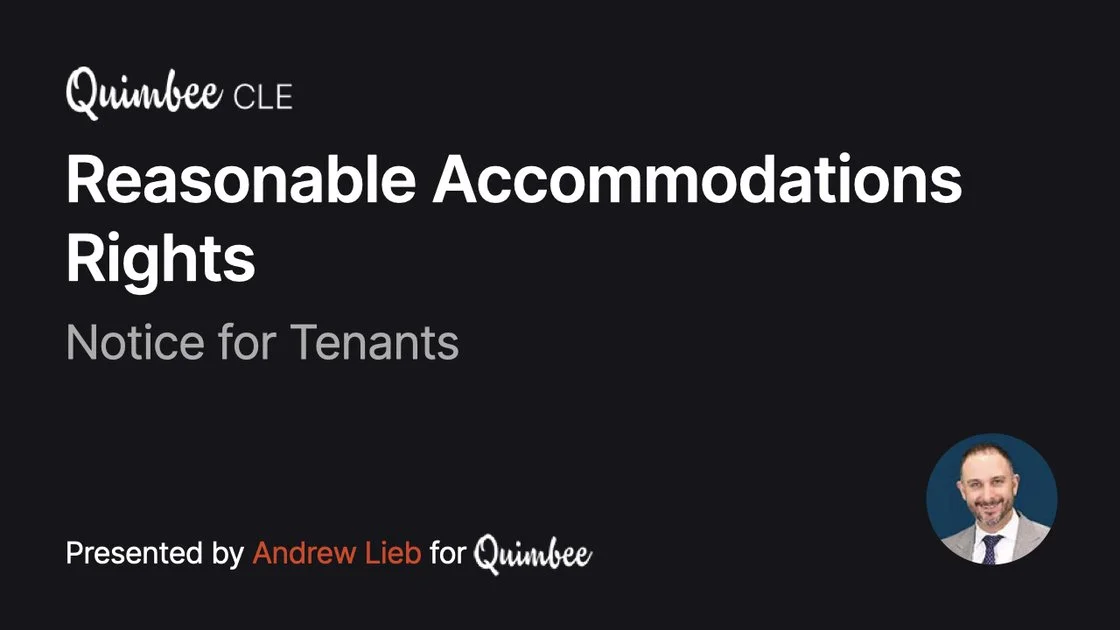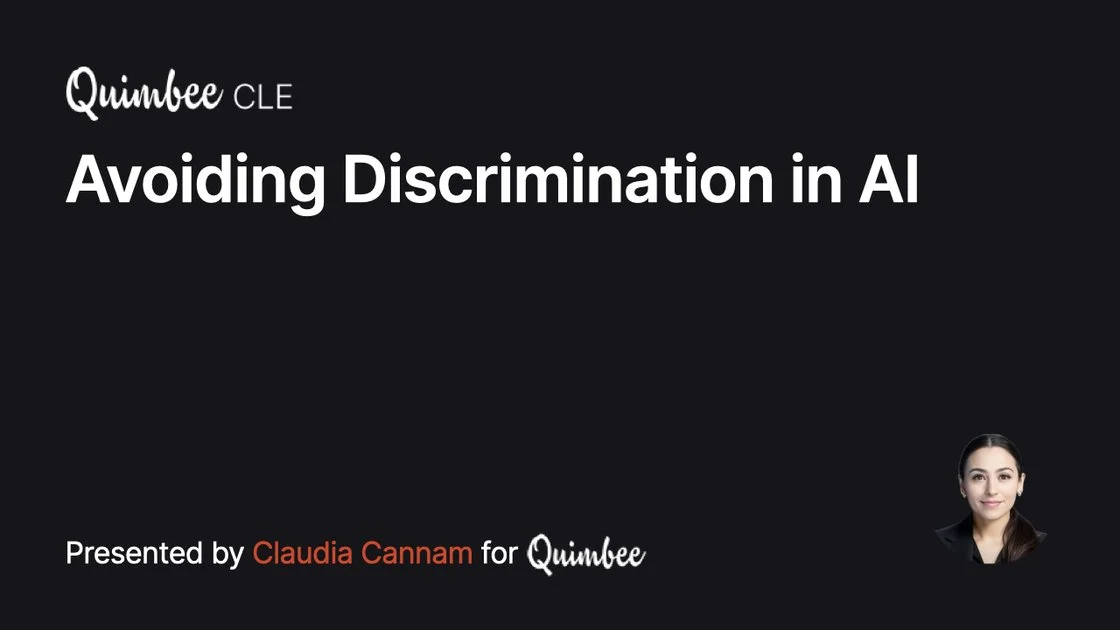Continuing Legal Education
-

Reverse Discrimination: McDonnell Douglas in Trump's America
Victims of illegal DEI policies need to know how to sue to recover for their employer's discriminatory actions. Affirmative Action is over, per SCOTUS in SFFA v. Harvard, and minority status can no longer even be a plus factor in making employment decisions. Welcome to the age of the meritocracy. However, EEOC's Affirmative Action Guidance remains outdated and employers following this Guidance should get ready to be sued for discrimination.
This course, presented by, Andrew Lieb, Managing Partner at Lieb at Law, P.C, teaches McDonnell Douglas in Trump's America, where prong #1 is anticipated to no longer be "membership in a minority group" because the Parker / Harding Test is on the chopping block before SCOTUS. This program will benefit both Plaintiff's attorneys and anyone representing an employer, including attorneys and HR / People. As new EOs are being signed each day, you can either be stuck with yesterday's pronouns or know how to operate in an anti-discriminatory employment world that acknowledges that "discrimination against so-called 'majority' citizens is no longer 'unusual,' but rather has become common."
-

Procuring Cause for Earning Real Estate Brokerage Commissions
As the housing market sours, there has been an uptick in homesellers refusing to pay their real estate brokers commissions. This has rendered the timing of when commission vests a hotly contested and litigated issue. In this course, you will learn the default rules for when commission vests, the meeting of the minds, and what options brokers and sellers have to change that default rule by supplanting the listing agreement with other triggers to commission. We will delve into how the default rule is modified when a real estate broker is cut out of a transaction as well as when a broker's breach of statutory / common law duties impacts their ability to claim commission. This is your one stop shop to learn how to litigate real estate brokerage law.
-

Viewpoint Discrimination & Symbolic Speech
In this course, Andrew Lieb will discuss the emergence of restrictions on speech in public schools and whether those restrictions constitute actionable viewpoint discrimination. Can the government regulate what teachers and students wear and display in our public schools? When are time, place, and manner restrictions permissible and when are they discriminatory? Do policies like the “Don't Say Gay” rule, violate the First Amendment? This course will teach you how to analyze a viewpoint discrimination case and prepare you to fight to protect your clients' constitutional rights.
-

Proving Emotional Distress Damages in a Discrimination Case
Discrimination law is top of mind for most attorneys and businesses throughout the country. We all like to discuss the latest news headlines and debate our culture wars to determine who is right and wrong, but in reality, that discussion misses the point. The real question is what is the cost of being wrong. For example, while pecuniary damages (such as back pay and front pay) are known and tangible, have you considered non-pecuniary damages in your case evaluation? In discrimination law, the largest category of damages is emotional distress, which can vary depending on the proof you have and your ability to prove it in court. In this course, Andrew Lieb will teach you how to gather and prove these intangible damages, which will make or break your discrimination case.
-

Reasonable Accommodations Rights Notice for Tenants
Disabled tenants have rights to reasonable accommodations throughout the United States. Failing to honor those rights can quickly cause a landlord, property manager, and real estate broker to face a six figure lawsuit. Now, the State of New York has stepped it up a notch by requiring landlords, property managers, and real estate brokers to provide a written notice to all tenants and prospective tenants about their rights. The notice explains which accommodations are available under law, how to request an accommodation, and how to bring a claim for discrimination if an accommmodation is wrongfully denied. This course will get you up to speed with the statutory and regulatory framework under which the NYS notice exists while offering you a full compliance protocol for your clients to follow. It will also show you how to leverage a defendant's failure to give the notice in a plaintiff's failure-to-accommodate discrimination case so that you can properly advise tenants who have faced discrimination.
-

Education Discrimination after Cummings v. Premier Rehab Keller
Students and faculty alike are protected from discrimination in education under Federal Law. If an educational program receives federal funds, Title VI of the Civil Rights Act of 1964 prohibits discrimination based on race, color, or national origin, Title IX of the Education Amendments of 1972 prohibits discrimination based on sex, and Section 504 of the Rehabilitation Act of 1973 prohibits discrimination based on disability. Nonetheless, the remedies available under these laws were drastically limited by the US Supreme Court, on April 28, 2022, when its decision in Cummings v. Premier Rehab Keller cutoff victims' right to recover emotional distress damages. Learn what remedies remain under these federal laws and how the Court's narrow reasoning left emotional distress damages available under other anti-discrimination statutes. This course will break-down the Cummings Case and prepare you to litigate education discrimination under its new rubric. goes here
-

Leveraging The Equal Pay Act After Women's Soccer's Big Settlement
Women's Soccer scored big by getting paid $24 million dollars in a settlement with the U.S. Soccer Federation when they leveraged The Equal Pay Act. Then, they renegotiated their collective bargaining agreement to ensure equal pay with the men's team moving forward. Your clients can also win big if they are experiencing sex-based wage discrimination at work. Learn the in's and out's of The Equal Pay Act and its companion law, Title VII of the Civil Rights Act, to score a big win. Participants in this course will be ready to bring claims and defend suits right out of the gate, which is particularly important because women were still earning 82 cents on the dollar, as compared to men, as recently as 2020. Plus, those figures were from before COVID set women back decades in their fight for equality.
-

Avoiding Discrimination in AI
In order to navigate some of the legal challenges that come with new tech, you must understand the hidden biases in artificial intelligence systems and their legal impact. This course will dive into how AI discrimination occurs and its real-world consequences. We will review practical advice and strategies for avoiding discrimination when using AI.